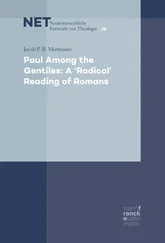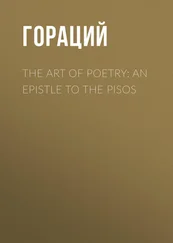Charles Gore - St. Paul's Epistle to the Romans - A Practical Exposition. Vol. II
Здесь есть возможность читать онлайн «Charles Gore - St. Paul's Epistle to the Romans - A Practical Exposition. Vol. II» — ознакомительный отрывок электронной книги совершенно бесплатно, а после прочтения отрывка купить полную версию. В некоторых случаях можно слушать аудио, скачать через торрент в формате fb2 и присутствует краткое содержание. Издательство: Иностранный паблик, Жанр: foreign_religion, foreign_antique, foreign_prose, на английском языке. Описание произведения, (предисловие) а так же отзывы посетителей доступны на портале библиотеки ЛибКат.
- Название:St. Paul's Epistle to the Romans: A Practical Exposition. Vol. II
- Автор:
- Издательство:Иностранный паблик
- Жанр:
- Год:неизвестен
- ISBN:нет данных
- Рейтинг книги:5 / 5. Голосов: 1
-
Избранное:Добавить в избранное
- Отзывы:
-
Ваша оценка:
- 100
- 1
- 2
- 3
- 4
- 5
St. Paul's Epistle to the Romans: A Practical Exposition. Vol. II: краткое содержание, описание и аннотация
Предлагаем к чтению аннотацию, описание, краткое содержание или предисловие (зависит от того, что написал сам автор книги «St. Paul's Epistle to the Romans: A Practical Exposition. Vol. II»). Если вы не нашли необходимую информацию о книге — напишите в комментариях, мы постараемся отыскать её.
St. Paul's Epistle to the Romans: A Practical Exposition. Vol. II — читать онлайн ознакомительный отрывок
Ниже представлен текст книги, разбитый по страницам. Система сохранения места последней прочитанной страницы, позволяет с удобством читать онлайн бесплатно книгу «St. Paul's Epistle to the Romans: A Practical Exposition. Vol. II», без необходимости каждый раз заново искать на чём Вы остановились. Поставьте закладку, и сможете в любой момент перейти на страницу, на которой закончили чтение.
Интервал:
Закладка:
St. Paul, then, is here intending to vindicate the real meaning of election, in the sense in which it is bound up with the ethical character of God and carries with it a deepened feeling of responsibility in those who are the subjects of it. But his argument is directed, first of all, to one point only – to bringing the eyes of the Jews straight up to their own scriptures, and forcing them to see that they do not justify the idea of election purely by race. It is not all of a certain seed, but only part of it, that is chosen. There is nothing to hinder a great part of the race again becoming as Ishmael or as Edom by the side of Israel. Ultimately, no doubt, there are two points to be proved. First, that God's method of choosing an elect body to be His people in the world is inscrutable, so that we cannot produce or determine His election by any calculation, or by any real or supposed merits, of ours; secondly, that though we cannot create our vocation, we can retain it by moral correspondence or faith, and by that only. But at present it is only the first point that is insisted upon – the absolute, inscrutable element in the divine choice. And that, we should notice, is a fact not merely of scriptural evidence but of common experience. Men are born to higher and lower positions of privilege and opportunity. They are born Jacobs or Esaus, in respect of moral, intellectual, religious, or physical endowment – with ten talents, or five, or two, or one; and God does not often give us so much as a glimpse of the reason why. All He does make clear to us is that the determination of human vocations, higher or lower, is in wiser hands than ours.
It is of course evident, as has already been said, that what St. Paul is speaking about is the election of men, and specially races or nations of men, to a position of spiritual privilege in this world . We know now, better than the Jews of the Old Covenant could know it, that behind all the apparent injustices and inequalities of this world lies the rectifying equity of God. St. Peter had come to believe that the divine mercy had rectified in the world beyond death the apparently rough and heavy handed judgement upon the rejected mass of mankind in the time of the Flood. That physical catastrophe at least was an instrument of mercy in disguise 28 28 1 Pet. iv. 6. 'The gospel was preached to' these 'dead men that they might be judged according to men in the flesh,' i.e. by perishing in the flood, 'but live according to God in the spirit,' i.e. through our Lord's preaching in Hades. There is, I think, so far, no ambiguity about this passage.
. St. Paul believed the same about all God's rejections, as well as elections, in this world. They served one universal purpose: 'That he might have mercy upon all 29 29 Not, however, without regard to man's will to respond to the divine offer, see later, p. 82 ff.
.' But all the same here and now in this world God does work by means of enormous inequalities. There are Jacobs whom He plainly loves, upon whom He showers all His richest blessings, and Esaus whom, to judge from present evidence, we should say He hates – whom He sets to live in hardest and most cramping surroundings. And no man can determine which lot he shall enjoy. That lies in the inscrutable selectiveness of God.
That there is no question at all about the eternal welfare of the individual Esau's soul – that the question is simply of the comparative status of Israel and Edom in this world – appears plainly in the passage of Malachi, which St. Paul quotes. And we must notice how unexpected an application St. Paul gives to this passage in a direction most unfamiliar to Jewish thought. For Edom was to the Jew the very type of all that was most hateful. He anticipated for the Edomites God's worst vengeance, as for Israel God's best blessings. But St. Paul forces him to think – Why should he assume that he will be better off than Edom? Edom was once physically on Israel's level, or his superior in claim, when their first fathers were but just born infants. But God chose one and not the other. He may exercise the like unscrutable selectiveness upon the seed of Israel to-day. And Edom did not remain in a merely secondary position. He sank to be a byword for all that is most hateful to God. Be warned, St. Paul would say, it may be that 'with change of name the tale is told of thee 30 30 Mal. i. 2, 3. 'Was not Esau Jacob's brother? saith the Lord: yet I loved Jacob; but Esau I hated, and made his mountains a desolation, and gave his heritage to the jackals of the wilderness. Whereas Edom saith, We are beaten down, but we will return,' &c. This passage (1) plainly refers to Esau as meaning Edom , the people; (2) describes not the original lot of Esau, which was secondary indeed, but highly blessed (Gen. xxvii. 39, 40); but the ultimate lot of Esau when he had misused his original endowment in violence and cruelty.
.'
DIVISION IV. § 2. CHAPTER IX. 14-29.
God's liberty in showing mercy and judgement always retained and asserted
But the obvious reply of the Jewish objector to St. Paul's assertion of the absolute and apparently arbitrary freedom of God's election is that it is unfair. It convicts God of unrighteousness. To this objection (ver. 14), which St. Paul deprecates with horror, he replies not by any large consideration of divine justice, but still by keeping the Jew to his own scriptures. The God revealed in scripture must be to the objector still the just God. He cannot call God unjust if His method as it now appears is that to which He called attention long ago. Look back, then, at the past records. Did God disclose Himself as bound to show mercy on Moses the Israelite, or to harden and judicially condemn Pharaoh the Egyptian? No, He declares to Moses His unrestricted freedom to exhibit His compassion on whom He will (Exod. xxxiii. 19). Men cannot by any choice or efforts of their own produce an exhibition of divine favour such as was shown to Moses the leader of Israel: the absolute initiative must come from God, and in taking that initiative He declares Himself absolutely free. In the same way God implicitly asserts His sovereign freedom when He brings Pharaoh out upon the stage of history as an example of the way in which He hardens men's hearts with a hardening which is the prelude to overthrow, that men all over the world may see and tremble at the divine power. It is not because Pharaoh is an Egyptian that he is hardened. He is hardened, as Moses has compassion shown him, simply because it is the will of God so to do in his case.
But the objector comes forward again (ver. 19): 'If this is the arbitrary method of God – if we are simply powerless puppets in the hands of an absolute and arbitrary will, to be saved or be destroyed – at any rate He has no reason to complain of us. If all the power is His, so is the responsibility.' Now St. Paul has it in his hand to show that there remains to man a very real power to retain his position, and consequently a very real responsibility and room for being blamed or praised: for if we cannot create our vocation, we can and we are required to correspond with it in a reverent and docile faith; and it was exactly here that the Jews had failed, in spite of all their prophets had taught them. But he keeps back this answer awhile, because he finds the attitude of such an objector toward God in itself so reprehensible. Such an one has not given consideration to what the relation of man to God really is – the creature to the creator. His critical, complaining attitude is nothing better than foolish.
Thus he takes his antagonist back upon the old prophetic metaphor of the potter and his clay, with which Isaiah and Jeremiah had rebuked the arrogance and impatience of men long ago: 'Shall the thing framed say of him that framed it, He hath no understanding; and shall the clay say to him that fashioneth it, What makest thou 31 31 Isa. xxix. 16, xlv. 9, lxiv. 8; Jer. xviii. 6; Ecclus. xxxiii. 13.
?' He follows, however, most closely upon the later writer of the Book of Wisdom: 'For a potter, kneading soft earth, laboriously mouldeth each several vessel for our service: nay, out of the same clay doth fashion both the vessels that minister to clean uses, and those of a contrary sort. All in like manner; but what shall be the use of each vessel of either sort, the craftsman himself is the judge 32 32 xv. 7.
.' The thought was often in St. Paul's mind of the inequality of lots in the world and the Church. There are more and less honourable limbs in the body politic: there are vessels for honourable and vessels for dishonourable purposes in the great social economy 33 33 1 Cor. xii. 22-5; 2 Tim. ii. 20.
. So it is with the races of men. They are all of one blood – of the one lump. But some have high and others low vocations, and the right to determine of what sort the lot shall be in each case lies absolutely with the Divine Potter. It is childish to dispute His title. And not only so: when the potter, whom Jeremiah was ordered to observe, found a vessel he was making marred under his hand, 'he made it again another vessel, as seemed good to the potter to make it 34 34 Jer. xviii. 4. The passage continues with a strong assertion of God's freedom to govern the destinies of nations on moral principles.
.' Accordingly, when the chosen material (i.e. the Jews) would not mould to the high purpose for which the Potter was fashioning it, who shall complain if He diverted it to lower uses or threw it away to destruction, and produced out of His stores other vessels which He had already prepared and destined for glorious functions (that is to say, the Gentile Christians)? But the case is even stronger than this. Who indeed shall complain if, when the vessels originally destined for the higher uses prove fit for nothing but destruction, the Divine Potter – though willing, now as in the case of Pharaoh, to let His wrath fall and to manifest His power – yet shows almost unlimited forbearance with them (as in fact God did with the Jews); and when at last He does let His wrath fall, only does so in order to manifest anew the resourcefulness of His mercy 35 35 When Moses asked to see God's glory (Exod. xxxiii. 18), what was revealed to him was His goodness and free mercy, and what St. Paul here means by God's glory is His mercy especially.
upon a new and larger Israel, gathered not from among the Jews only, but from among all nations, to be the object of His compassionate regard?
Интервал:
Закладка:
Похожие книги на «St. Paul's Epistle to the Romans: A Practical Exposition. Vol. II»
Представляем Вашему вниманию похожие книги на «St. Paul's Epistle to the Romans: A Practical Exposition. Vol. II» списком для выбора. Мы отобрали схожую по названию и смыслу литературу в надежде предоставить читателям больше вариантов отыскать новые, интересные, ещё непрочитанные произведения.
Обсуждение, отзывы о книге «St. Paul's Epistle to the Romans: A Practical Exposition. Vol. II» и просто собственные мнения читателей. Оставьте ваши комментарии, напишите, что Вы думаете о произведении, его смысле или главных героях. Укажите что конкретно понравилось, а что нет, и почему Вы так считаете.












